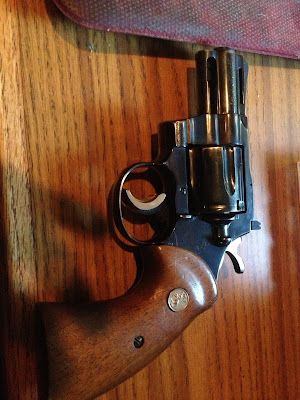This week, we’re taking a look at Damyanti Biswas' fantastic new book, The Blue Bar.
An introduction in situ, we follow Tara, a bar girl on assignment through a crowded Mumbai train station. We also meet the city itself, loud, steamy, and chaotic. The electric tension that will be our companion through the book shadows Tara’s footsteps.
A city of islands, Mumbai is a perfect central character in a crime story with disparate people, each an island to themselves. More than a setting, The City of Dreams is in turns squalid and seductive, sinister and sophisticated. And always as shocking as Tara’s low-slung saree.
Police Inspector Arnav Singh Rajput arrives, fittingly at a crime scene, a little later. Called to a construction site after the discovery of a headless, handless body, Inspector Arnav is both appalled by the attitudes toward the victim yet quietly resigned to another day on a tough police beat.
Then one body leads to two others.
As daunting as the specter of a serial killer might be, Arnav must also contend with pressure to reopen a connected developer’s construction site as well as administrative pressure to put the case of headless bodies to rest. Instead of complying, Arnav pushes harder and his investigation quickly escalates from minor annoyance to major impediment.
Consequences stack up in a political town with deep party roots and deeper political bloodlines. When Arnav ignores not-so-subtle warnings that the investigation may impact his advancement, the powers-that-be amp up the pressure. Yet as the vice tightens on him, Arnav intensifies his hunt for the killer and end the slaughter.
The Blue Bar of the title is a venue where women dance to “lewd Bollywood songs” for money. Most, if not all, of the women are there due to no fault of their own. Many have been victimized based on caste and/or economics.
What sets The Blue Bar apart from the standard potboiler is the author’s insight. Biswas illustrates social norms that contribute to a shrug-and-tsk-tsk acceptance of violence against women without resorting to stereotype, classism, or easy answers. Everyone has a part in the tragedy.
And, just as seen in similar establishments in the west, the step from dancing to prostitution is more skip than leap.
The ultimate villain here is misogyny, bar girls to office girls to Bollywood actresses, women are treated as commodities for trade. Just as often they are discarded as trash for the crime of existing. Blamed for the way they dress, the work they do, or simply being out of the house, their only real provocation is bringing a moment of light or joy to otherwise mundane lives.
In genre’s best tradition, Biswas raises questions of social responsibility, (here, it’s how we treat women) but leaves the answers to us. Echoes of her opening lines on beginnings and endings run through my thoughts as I type this.
If not readily apparent, The Blue Bar is a deeply affecting story without benefit of spoon-feeding or the burden of preaching.
Two years ago, I had the good fortune to find Damyanti Biswas’ excellent crime novel, You Beneath Your Skin. That book absolutely captivated me and I still think about Anjali Morgan, Jatin Bhatt, and the crew at the Vigil. The Blue Bar not only measures up to the standard set by that first effort but exceeds it. If possible, Biswas’ skill has developed even more and her prose are even more fearless. I have no doubt that The Blue Bar will stay with me just as YBYS has.
Indeed, Biswas infuses Mumbai with the same life that she so deftly revealed in the New Delhi of YBYS. When Tara reflects that she would neither leave Mumbai nor would she want to, I feel her sentiment in my deep love of cities. Even as we are elbow-to-elbow with Arnav while he hunts the killer, I feel the love for a wondrous place full of danger but also of vibrant life. The sweltering heat, the “tinny songs,” and food-stall aromas brace us as we slide in the direction we want to go (justice?) while the throngs carry us along but not entirely as intended (resolution?).
In short, reading Damyanti’s latest is like catching up with an old friend or making a new friend all over again. You can find The Blue Bar here. Check it out.
The photo at the top is used by Damyanti Biswas' permission.



















